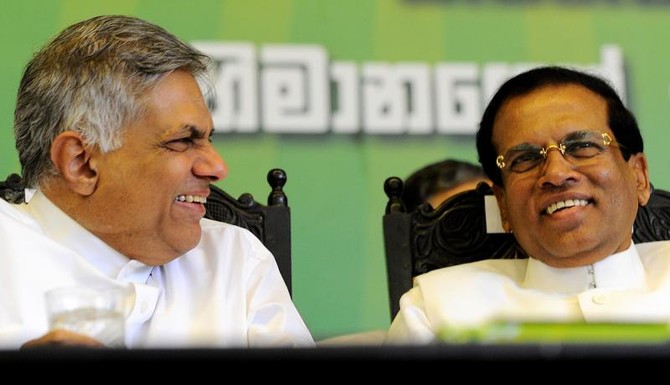COLOMBO: Sri Lanka’s main opposition presidential candidate has vowed to resist international moves to investigate the island’s war record, but promised a domestic probe if he was elected in January’s polls.
Maithripala Sirisena, who defected last week from President Mahinda Rajapakse’s party, said he would not allow Sri Lankans to be tried overseas for war crimes allegedly commited during the separatist conflict that ended in 2009.
“I will not allow President Rajapaksa, his family or any member of our armed forces to be taken before any international war crimes tribunal,” Sirisena said in Colombo.
A UN-mandated probe is underway into allegations up to 40,000 civilians were killed by government forces while crushing separatist Tamil rebels in the final stages of the war in 2009.
Rajapaksa does not recognize the probe and has refused to grant visas for any investigator to come to Sri Lanka, prompting the UN to say that there was a wealth of information available outside the country.
Rajapaksa has, however, widened the scope of a local panel probing cases of war-time disappearances, to include allegations of excessive force used by both government forces and Tamil rebels.
Sirisena was sacked as health minister last week after his shock announcement of defection from the ruling Sri Lanka Freedom Party to run in the January 8 contest against Rajapakse.
Resisting international pressure to cooperate with the UN-mandated probe is seen as popular among the Sinhalese community from which both Rajapaksa and Sirisena hail.
Minority Tamils have consistently demanded a foreign probe, saying they have no faith in any domestic investigation.
Both international and local rights activists say individual freedoms are still under attack in Sri Lanka five years after the end of the separatist war.
The UN has estimated up to 100,000 people may have been killed in the conflict between 1972 and 2009.
Sri Lanka opposition candidate resists foreign war probe
Sri Lanka opposition candidate resists foreign war probe











